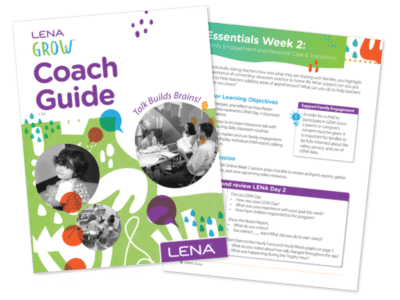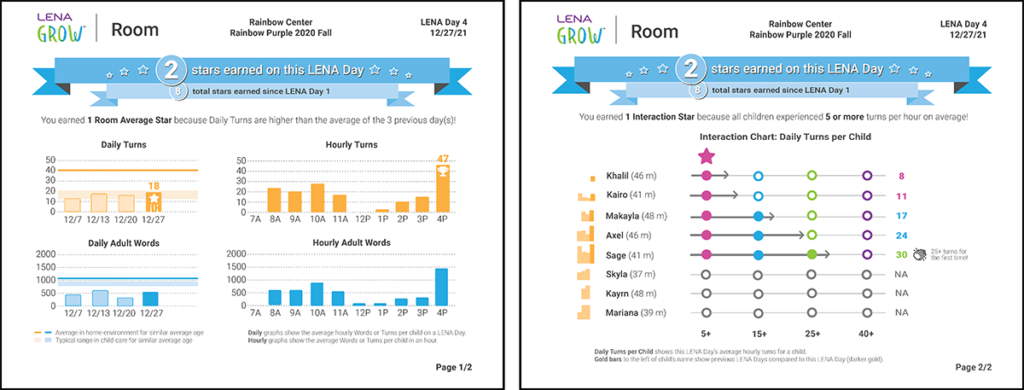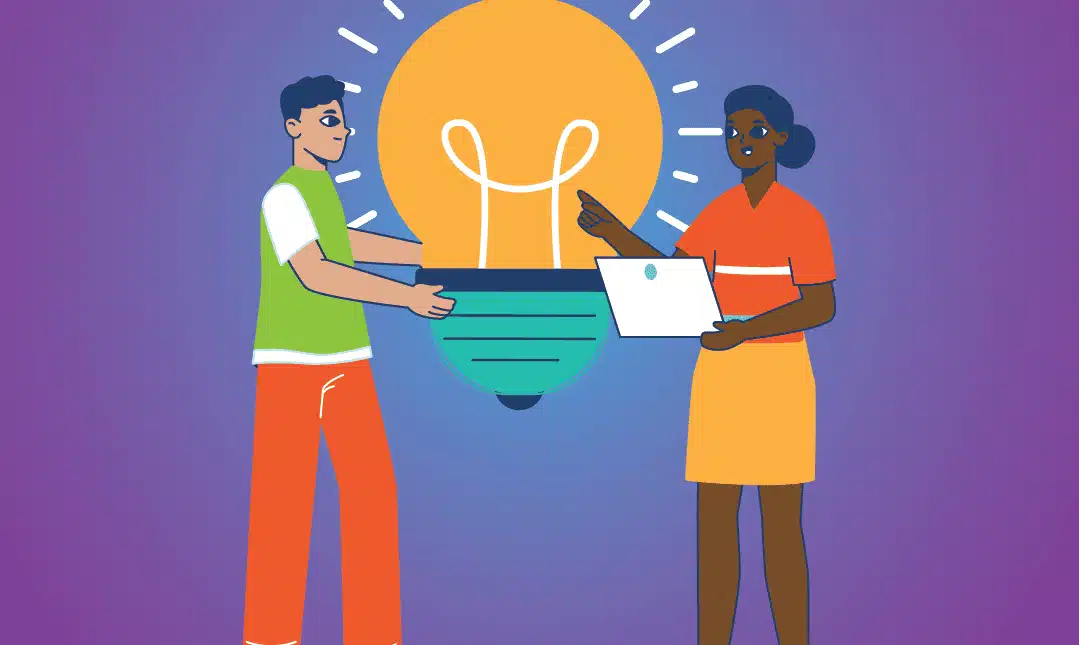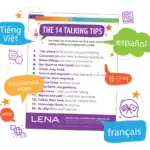LENA Grow is designed for early childhood educators, helping them up their confidence and competencies. But the practice-based professional development program also provides a novel approach for coaches.
LENA Grow’s reflective feedback cycle encourages teachers to make their own insights and arrive at their own “a-ha” moments. Instead of assuming the role of expert speaking from on high, then, the coach becomes a guide. The coach engages teachers in taking active charge of their own learning. That means the coach/educator relationship has space to be built on mutual trust.
Over the past year, I’ve had the opportunity to coach 11 amazing early childhood educators in Washington, D.C. They’re all women, they all either teach in or own Child Development Homes (D.C.’s name for family child care), and they’re all strong advocates for the early education profession as a whole.
We’ve gone on an amazing LENA Grow journey together. How the program has enhanced their approach to teaching is what matters most. I also realize, though, that LENA Grow has had a profound impact on my own approach to coaching.
Here are seven ways LENA Grow has taught me to be a better coach:
1. LENA helps me make the teacher the expert.

At its core, strengths-based coaching is about valuing the teacher as the expert in their classroom and facilitating a self-directed growth mindset.
Interactive talk is the one constant in quality early care environments, and it’s the primary thing LENA Grow focuses on. As a coach, then, you don’t have to worry about how well the content will align with the curriculum being implemented, with other trainings, or with the assessment tool being used for quality ratings. Early childhood professionals come from so many different backgrounds, and early learning settings have so many different curriculum models, assessment tools, and classroom structures.
It’s refreshing to coach for a professional development program that puts the classroom itself front and center, because the teacher is the only expert when it comes to the classroom.
2. LENA allows me to focus on the coaching experience.
Since the coaching content and structure are simple and consistent, I have time to reflect on my coaching practice. How does my behavior impact the educator’s engagement in the process? Am I maintaining a positive attitude? Am I excited about the session? Am I responsive? Are there any implicit biases hindering my work? Do I have any verbal or nonverbal cues that may be impacting the coaching relationship?
3. LENA improves my own data literacy, helping me find true understanding within the numbers.
Assessment tools can sometimes hinder growth because they may focus on deficits rather than strengths. Conversely, LENA’s Room Reports, which provide a data-driven, bird’s-eye view of the classroom’s language environment, let you identify strength as a starting point. The reports always have a trophy hour, representing the hour of the LENA Day when the most conversational turns took place.
Although the reports provide an objective measure of the classroom language environment and each child’s language experience for the day, only the teacher truly knows the story behind the data. This facilitates discussion and can help the educator make their own discoveries and create their own learning. The reports spark curiosity in the teacher and the coach alike.

4. LENA teaches me to ask thought-provoking questions.
I’ll be honest. At first, my open-ended questions — e.g., “What was your last LENA day like?” — would sometimes result in one-word answers or nonspecific responses. I’ve learned to follow up with questions that would draw more out of the educators:
- Which of the 14 Talking Tips were you able to use this week?
- Tell me more about your trophy hour.
- What was different about this week than previous weeks?
- What strategies did you use with Aaron this week that made a change in his numbers?
5. LENA strengthens my active listening skills.
Listening thoughtfully, seeking clarification, and encouraging others to share their perspective isn’t always easy. The LENA reports help create a natural balance in my listening-to-speaking ratio. I want to know more of the why behind the data.
Appreciating silence is often difficult for me, but I’ve learned to pause and give time for response. This opens a safe space for dialogue and helps keep the educator actively engaged in the session. I’ve learned to reframe and restate educators’ reflections to ensure understanding, to gain perspective, and to push further reflection. This is all about creating trust.
6. When it comes to setting measurable goals, LENA makes me the facilitator rather than the creator.
LENA Grow’s overarching goal is to increase interactive talk. How this is achieved, though, will look different for each educator and within each learning environment.
Every Grow session concludes with a goal-setting exercise. In turn, each new session starts with a review of the most recent LENA Day and a reflection of the previous week’s goals. This creates a growth mindset, empowers the educator, and promotes continuous improvement. A focus on the process rather than the ultimate outcome strengthens the coach’s ability to support the educator’s refinement of their goals. It helps the teacher determine what success looks like in their classroom, from their perspective.
7. LENA supports consistent celebration and affirmation of success.
Focused on the end goal, I often forget celebrate minor achievements. At first, I thought earning a star on a LENA report might not be worth celebrating. However, I quickly realized how motivating it was for teachers, as well as how simple yet important it was to celebrate success each week. Even in weeks when a star is not earned, every LENA report highlights successes by pointing out the trophy hour and visually showing weekly progress.
The reports provide opportunities for me to give specific feedback and highlight examples of growth. They also allow the educator opportunities to acknowledge their own accomplishments, as well as to discuss challenges. Each week poses a new opportunity to help the teacher celebrate and recognize minor and major successes in a way that is meaningful, paving the way to longer-term goals and culminating in the Celebration Report.
Building trusting responsive relationships is what LENA Grow is all about, from coach to teacher, from teacher to parent, and, perhaps most importantly, from teacher to child.
[callout]



